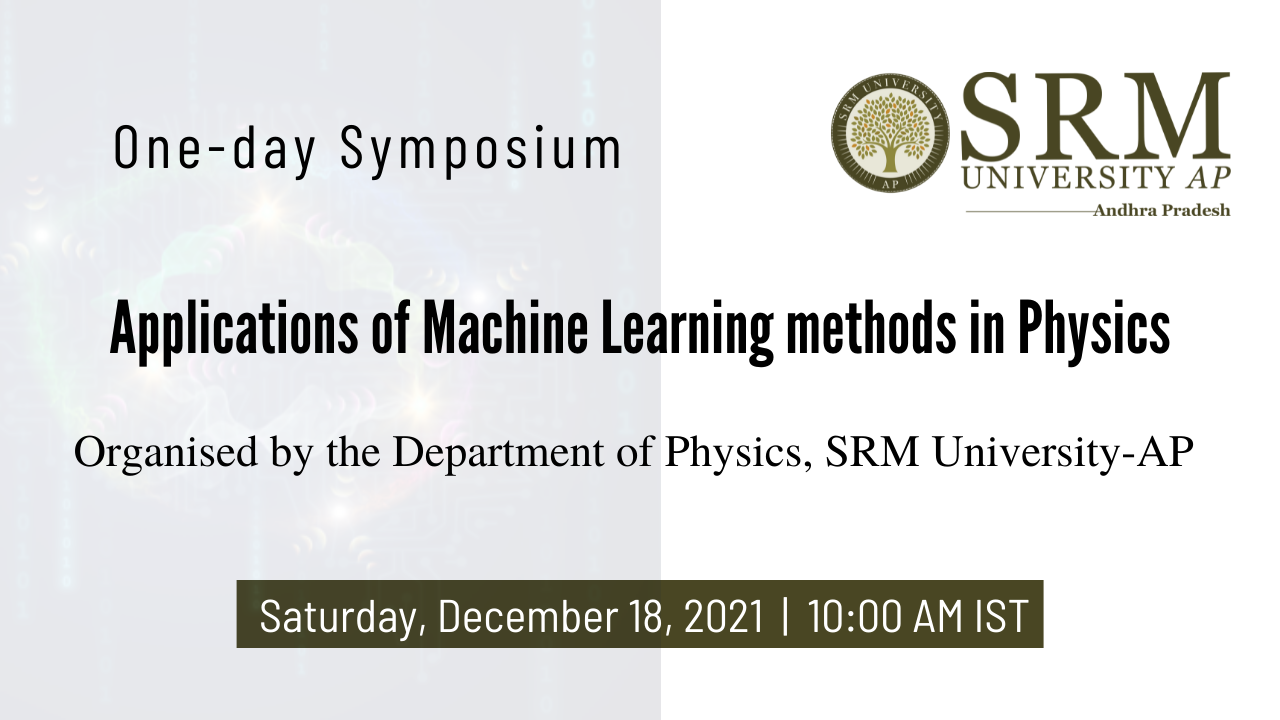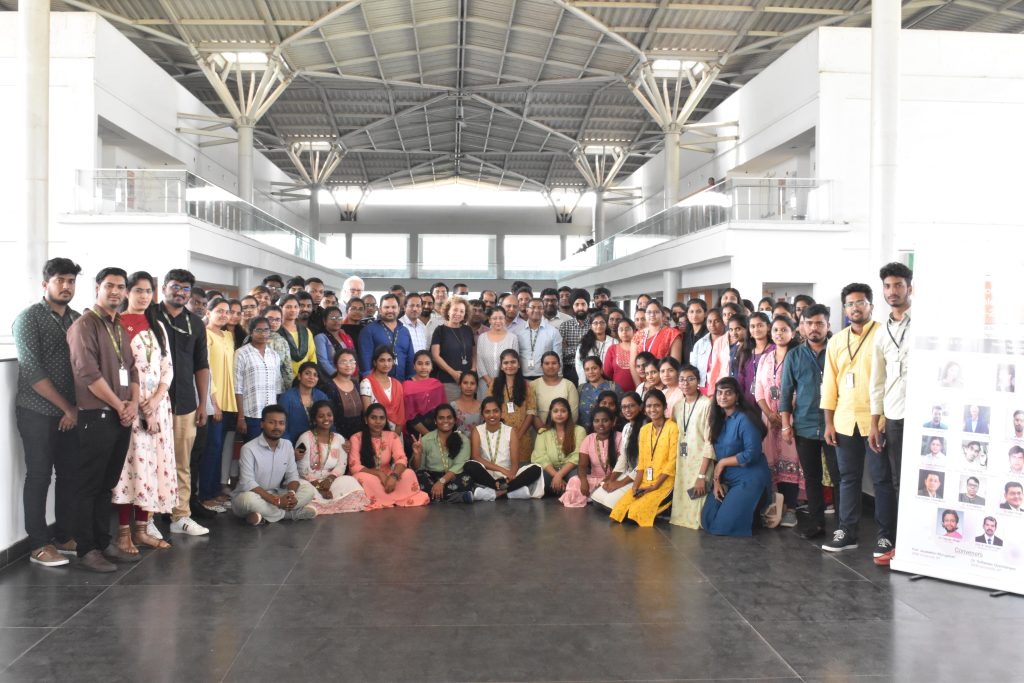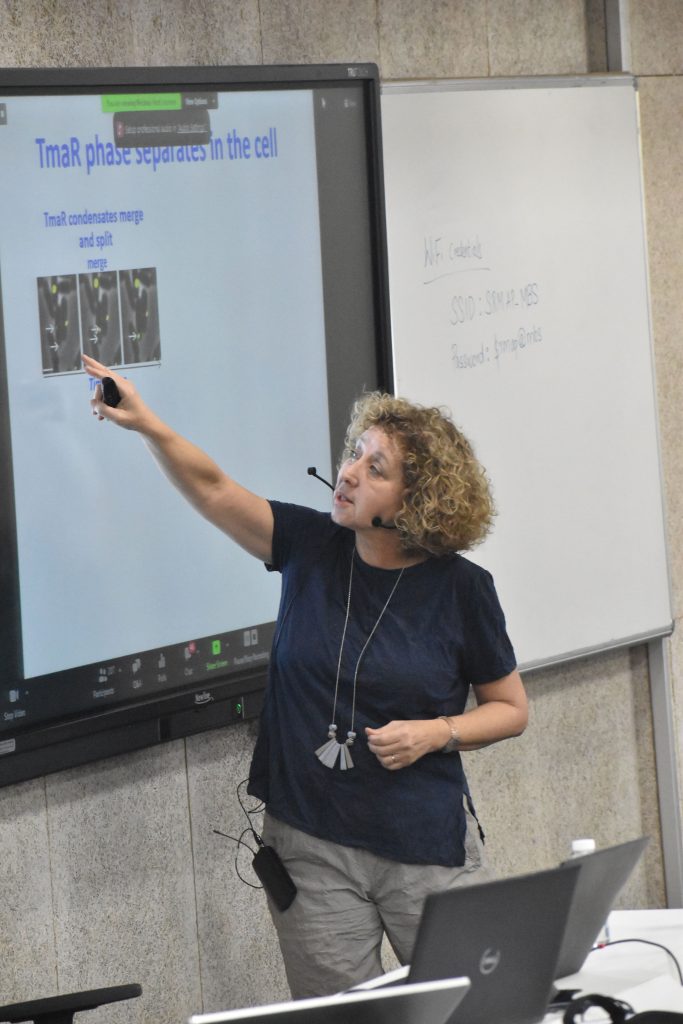On Applications of Machine Learning Methods in Physics

The Department of Physics at SRM University-AP is organising a one-day symposium with national and international academicians on the theme Applications of Machine Learning Methods in Physics. The programme which will begin at 10.00 am on December 18, 2021, will deeply look into two domains of research, namely Particle Physics and Statistical Physics. Eminent experts from computer science and physics domains will deliver talks for a wider audience, especially for students of basic sciences and engineering streams. The event is going to be entirely through Online mode. Dr Amit Chakraborty and Dr Soumyajyoti Biswas from the Department of Physics, SRM University-AP are the conveners of the symposium.
Programme Schedule of the Invited Lectures:
Time: 10.05 – 11.05 AM (IST)
Speaker: Prof Vineeth N Balasubramanian (IIT Hyderabad)
Title: Explainable Deep Learning: Overview, Trends and Challenges
Abstract: The last decade has seen rapid strides in Artificial Intelligence (AI) moving from being a fantasy to a reality that is a part of each one of our lives, embedded in various technologies. A catalyst of this rapid uptake has been the enormous success of deep learning methods for addressing problems in various domains including computer vision, natural language processing, and speech understanding. However, as AI makes its way into risk-sensitive and safety-critical applications such as healthcare, aerospace and finance, it is essential for AI models to not only make predictions but also be able to explain their predictions. This talk will introduce the audience to this increasingly important area of explainable AI, describe salient methods in explainable deep learning, discuss open challenges as well as present some of our recent research in this domain.
Time: 11.30 AM – 12.30 PM (IST)
Speaker: Dr Girish Varma (IIIT Hyderabad)
Title: Deep Generative Methods and Applications
Abstract: Generative methods deals with the modelling of complex high dimensional probability distributions. With the advent of deep neural networks, these methods have become more common with the discovery of new techniques like GANs. Such methods can learn to generate images, graphs etc even without using labelled data. In this talk, we will give some of the common deep generative modelling techniques like GANs, Variational Autoencoders, Normalizing Flows. We will also look at some example applications in Style Transfer, Super Resolution in Computer Vision, Conditional Generation of Molecules in Physics etc.
Time: 2.00 – 3.00 PM (IST)
Speaker: Dr Sanmay Ganguly (University of Tokyo, Japan)
Title: The Deep Relation Between Particle Physics and Machine Learning
Abstract: At the CERN Large Hadron Collider (LHC) experiment, trillions of protons get smashed with each other at very high energies every second. Remnants of this collision are collected and studied to infer what fundamental interactions are happening at the core. Analysing and extracting meaningful physics information out of this large data is a highly challenging statistical analysis, part of which has to be carried out in real-time. Modern deep learning techniques have brought a change in paradigm in the whole field, where it is observed that the application of ML truly impacts at all corners. In this presentation the speaker will try to give a general overview of the ongoing ML activities, mainly highlighting the areas in the context of LHC physics and shortly touch other branches of HEP.
Time: 3.30 – 4.30 PM (IST)
Speaker: Prof Lasse Laurson (Tampere University, Finland)
Title: Machine Learning Plastic Deformation of Crystals
Abstract: The speaker will present an overview of our recent efforts to apply machine learning to predict the fluctuating plastic deformation process of small crystals, mediated by the stress-driven motion of dislocations. To this end, we use machine learning to establish mappings between the initial state of a sample and the corresponding stress-strain curve, considering different loading protocols and geometries of the dislocation assembly. He will start with a discussion of machine learning the depinning process of edge dislocation pileups, after which he will consider the problem of machine learning-based prediction of the stress-strain response of two- dimensional systems of discrete dislocations subject to stress-controlled and strain-controlled loading.
Register soon and claim your seats at this one-day international online symposium organised by the Department of Physics, SRM University-AP!!
- Published in Departmental Events, Events, Physics, Sympossium
Symposium on Cell and Molecular Biology (SCMB-2023)

Cell and molecular biology is a vast field that encompasses many different areas of research, from genetics to immunology, from biochemistry to the study of single-cell sequencing. In order to emphasise the on-going research in cell and molecular biology, The Department of Biological Sciences organised a two-day Symposium on Cell and Molecular biology (SCMB-2023) from February 16 to 17, 2023, at SRM University-AP. The symposium consisted of insightful talks by eminent speakers from different parts of India and abroad, including the Hebrew University (Israel), Technion-Israel Institute of Technology (Israel), Biological Research Centre (Hungary), Weizmann Institute of Science (Israel), The AMR Insights (The Netherlands), Indian Institute of Science, IIT-Jodhpur, CSIR- Institute for Microbial Technology, IIIT-Delhi and more. A pre-symposium workshop on computational handling of biological data was another highlight of the convention.
Pre-symposium Workshop
In the past decade, the use of computational tools and algorithms to analyze data or use of artificial intelligence to model biological systems and predict how they will behave under different conditions have increased extensively. With an aim to give the basic knowledge of how this computational approach works, the Department of Biological Sciences invited Dr Gaurav Ahuja and Miss Aayushi Mittal to have a hands on session on:
- Building Machine Learning models leveraging biological datasets in R-programming.
- Using AutoML techniques for building classification and regression models (Biological datasets)
- Case study with Metabo Killer Python Package (Mittal et al. 2022, Nature Chemical Biology).

Symposium talks
Among all the eminent speakers the keynote speakers for the symposium were Prof. Orna Amster-Choder, Hebrew University of Jerusalem, Israel and Prof. Motti Choder, Technion- Israel Institute of Technology who gave an insight on gene expressions. With all the hot topics of cell and molecular biology starting right from ribosomal role in diseases, protein quality control in neurodegeneration and its therapy, the speakers also spoke about different model system and techniques, for instance bacterial nanotubes in intercellular interactions, use of Caenorhabditis elegans for host pathogen interaction, CRISPR-Cas3 systems for large-scale genome manipulation and gene discovery and Pseudouridine RNA modification. These insightful talks on data analytics and cell and its regulation not only provided the participants with brainstorming sessions, it also provided a platform to discuss and channelise new thoughts.
The conference was jointly convened by Prof. Jayaseelan Murugaiyan, Head of the Department of Biological Sciences, SRM University-AP, India and Dr Sutharsan Govindarajan, India Alliance Early Career Fellow and Assistant Professor at SRM University-AP. The symposium was held in a hybrid mode aimed to reach more budding scientists and established researchers. The target audience of the symposium included undergraduate students, postgraduate students, doctoral and post-doctoral scholars and researchers across the world. Participants from over nine institutes took part in the offline mode with a majority being undergrad students, whereas online participation witnessed registration from 327 institutes. The symposium had 120 offline participants and 572 online participants from 19 countries; 26 states and 3 union territories within India.
- Published in Biology News, Departmental News, News, Sympossium

